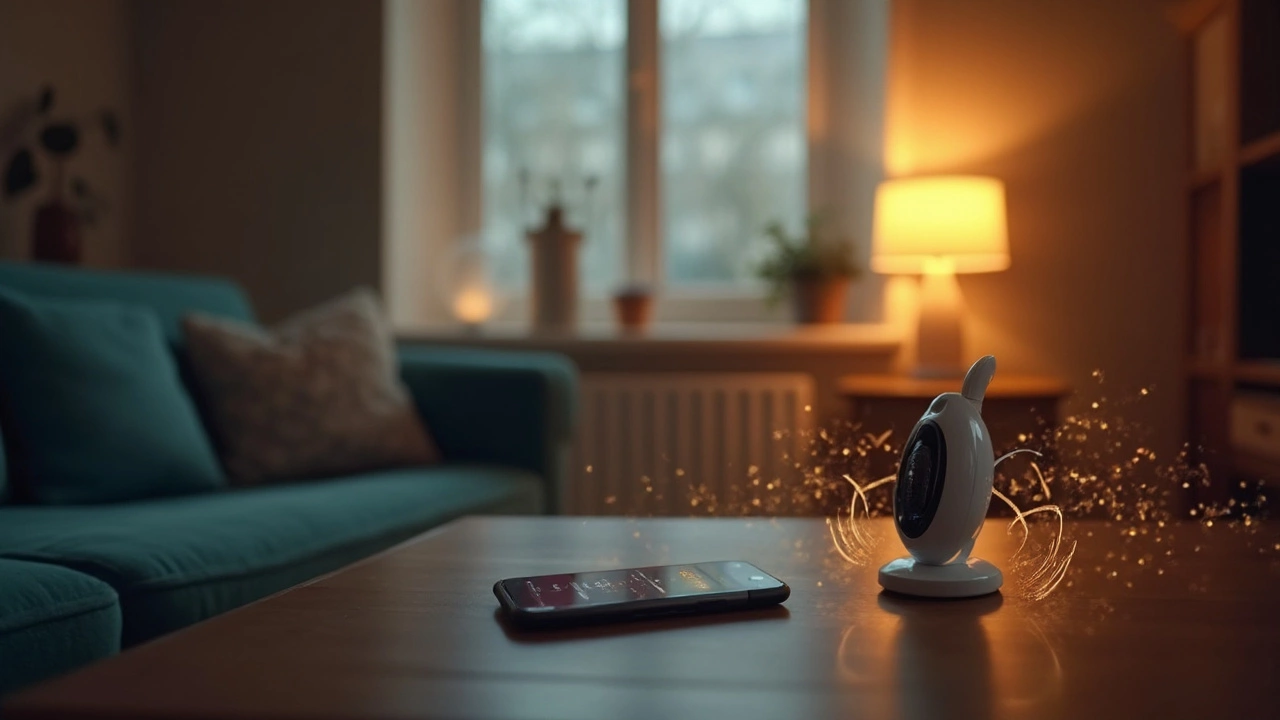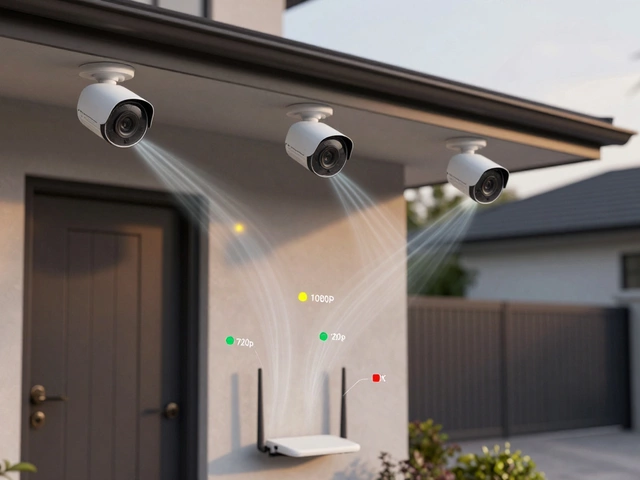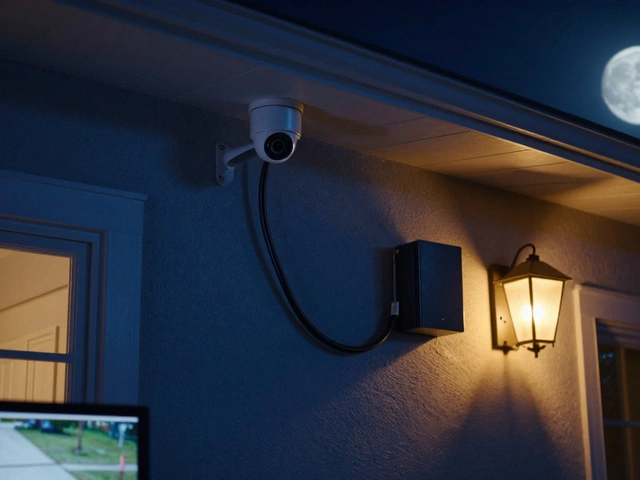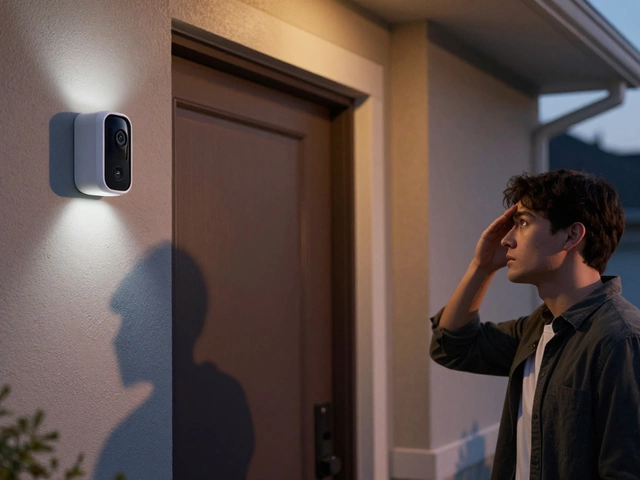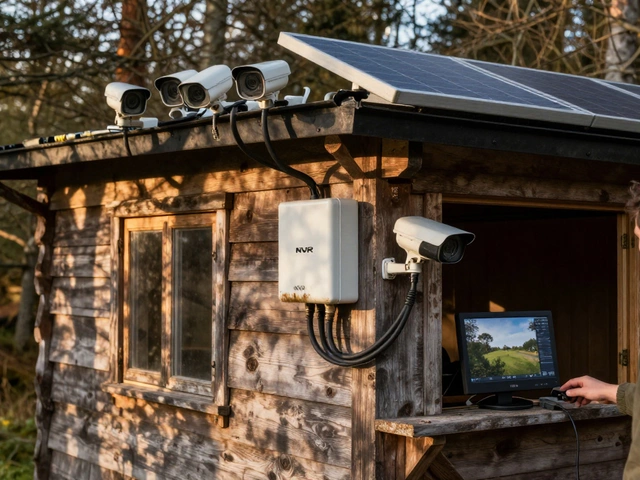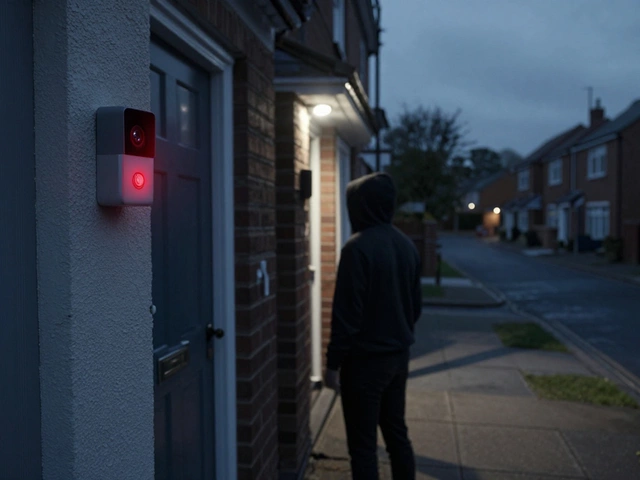Interception in Modern Home Security: What It Is and Why It Matters
When you hear the word "interception" you might think of spies or military ops, but in a home security context it simply means catching a threat before it becomes a problem. Your alarm, camera, or motion sensor is constantly listening, watching, and deciding whether to sound the alarm or send a push notification. Understanding how that decision‑making happens helps you choose gear that actually protects you.
What does interception mean for a typical house?
In plain English, interception is the moment a security device recognises something out of the ordinary and decides to act. It could be a doorbell camera spotting a delivery driver, a PIR sensor detecting movement in the backyard, or a smart alarm noticing that the phone line is down and switching to cellular backup. The key is that the device doesn’t just record; it interprets the data in real time and triggers a response – a notification, a siren, or a call to your monitoring centre.
Most modern systems combine several layers of interception. For example, a video doorbell will first check for a motion event, then verify that the motion matches a person shape, and finally decide whether to start recording. If you have a Ring or similar doorbell, the interception logic decides if the video gets saved to the cloud or just stays on the device.
Common interception techniques you should know
1. Motion‑sensor fusion. Newer motion sensors blend PIR (passive infrared) and microwave radar to cut down false alarms. The PIR watches for heat signatures while the microwave checks for slight changes in radio waves. Only when both agree does the system trigger an alarm. This dual‑tech approach appears in posts about the Best Motion Sensors for Home Security and helps you avoid those annoying “my cat set off the alarm” moments.
2. Video analytics. Smart doorbells and cameras now run simple AI on the edge. They can recognise a human versus a passing car, spot a package, or even notice a door left ajar. If the analytics flag a person approaching your front door, the system intercepts the video feed and sends you an instant alert. This is why you’ll read about battery life in articles like How Long Does a Ring Doorbell Battery Actually Last? – the more you rely on analytics, the more power you need.
3. Communication backup. Many wonder if a home alarm can work without a phone line. The answer is yes, thanks to cellular or Ethernet fail‑over. When the primary line drops, the system intercepts the failure and switches to the backup automatically. That’s the focus of the post Can a Home Alarm Work Without a Phone Line?
4. Cloud vs local storage decisions. Some users skip a subscription and wonder if their Ring doorbell still records. The device intercepts the lack of a cloud plan and keeps footage locally for a limited time. Once the storage fills, older clips get overwritten – a detail covered in Does the Ring Doorbell Record Without a Subscription?
5. Legal and neighbour considerations. Interception isn’t just a tech issue; it can become a privacy dispute. If a neighbour complains about your Ring doorbell, the law steps in to decide what you can record and where you can point the camera. Check out the guide Can Neighbours Legally Complain About Ring Doorbells? for the UK perspective.
All these techniques share one goal: catch a potential breach early enough to stop it. That’s why choosing devices with reliable interception logic matters more than picking the flashiest camera. Look for clear specs on motion‑sensor type, AI capabilities, and backup communications.
Bottom line – the moment your security gear “intercepts” a threat is the moment you gain control. Whether it’s a smart doorbell deciding to record, a motion sensor confirming a human presence, or an alarm switching to cellular when the line dies, each interception saves you a call to the police, a broken window, or an unwanted surprise. Keep the focus on devices that combine multiple detection methods, give you real‑time alerts, and respect your privacy. That way, your home stays safe without you having to become a tech guru.

